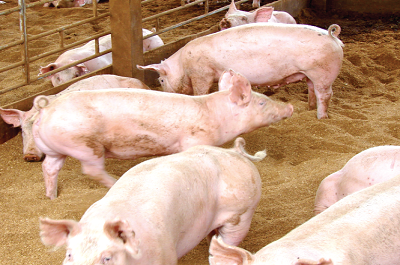
Insurance against the Swine Fever epidemic
Pork is one of the delicacies cherished by many Ghanaians. It is needless to state that the craving by many people to join the ‘pork eating club’ has been phenomenal in the past few years! Until 2006, my parents made me understand that we were forbidden from eating pork based on some traditional beliefs.
That has since changed from the day I first walked away from such beliefs. Pork is delicious! In spite of its fat content, nutritionists have posited that the meat of a pig is very low in cholesterol thus making it healthy for human consumption.
The Swine Fever epidemic
An outbreak of the African swine fever has reportedly hit the Ashanti and the Upper East Regions thus culminating in the killing of over 400 pigs between May and June this year and still counting.
This information was revealed by the Veterinary Services Department as the development seems to be creating some level of anxiety among pig farmers and pork lovers across the country. This anxiety appears justified by the fact that no one has any idea which community will become the next endemic area!
In order to control the spread of the highly contagious viral disease, movement and slaughtering of pigs from the affected areas have consequently been restricted while the diseased ones are being killed and buried.
The disease is said to be highly characterised by high fever haemorrhages, loss of appetite and a high mortality rate with no vaccine against the disease.
The epidemic last year and compensation
Last year, the disease was said to have hit the Ashanti Region leading to the loss of 6,000 pigs thus affecting the pig business and the livelihood of several pig farmers therein.
According to some of the pig farmers, there was no compensation for the killing of those pigs to enable them (pig farmers) to bounce back to business. This is the reason I think that pig farmers
themselves should be concerned and do some due diligence by having their own insurance policies against the loss of these animals.
The main insurance policy that could help salvage the financial loss to make pig farmers get back to business in the event of such epidemics is livestock insurance.
This week’s write-up, therefore, seeks to throw more light on livestock insurance and what is expected of pig farmers in particular and livestock farmers in general so long as they remain in the business of rearing the ‘four-legged’ consumables!
Livestock insurance
Livestock insurance is a restricted policy largely offered by specialist insurers and primarily patronised by farmers, camel and cattle herders and some pet owners. Generally, the loss of livestock by slaughter, death, disease or theft can occur through several unaccountable causes. This type of insurance, therefore, provides adequate compensation in the event of loss of livestock.
What livestock insurance covers
There is no standard cover for this type of policy because the nature of cover varies from one insurance company to the other. Thus, the policies are usually tailor-made for the particular risks.
Meanwhile, death following within 14 days of accident or injury; slaughter on humanitarian grounds; and a slaughter certified by a qualified veterinary officer or the insurer’s consent, must be consequent to the happening of the following:
• Compulsory slaughter due to an epidemic (e.g., swine fever, bird flu, etc).
• Fire, lightning, earthquake, explosion and aircraft;
• Riot and malicious damage
• Electrocution
• Loss in transit, while on foot or vehicle, at any public sale, market or yard or while straying from same or insured’s premises.
• Sheep, cattle or poultry being attacked by foxes as well as dogs.
• Theft and unexplained disappearance normally after a minimum of one month
• Death following illness or disease. This will include anthrax, TB and brucellosis.
• Breeding risks of selected types of animal from death from pregnancy or parturition (delivery).
• Infertility following accident, illness to e.g., bulls and rams.
• Territorial limits – the territorial limits of the cover are always clearly defined.
Types of livestock insurance
There are several types of livestock insurance, but the two most common ones are:
a. Insurance on a ‘specified animal basis’, with no upper limits.
b. ‘Unspecified basis’ - Here there is usually an upper limit of cover per animal say GH¢300 and if the insured wants to exceed this limit, a special policy will be issued.
Typically, the indemnity covers only the market value of the animal(s), at the time of the loss. While the condition of ‘average’ applies to livestock insurance; some insurers are able to modify the average principle to meet the customer’s expectation.